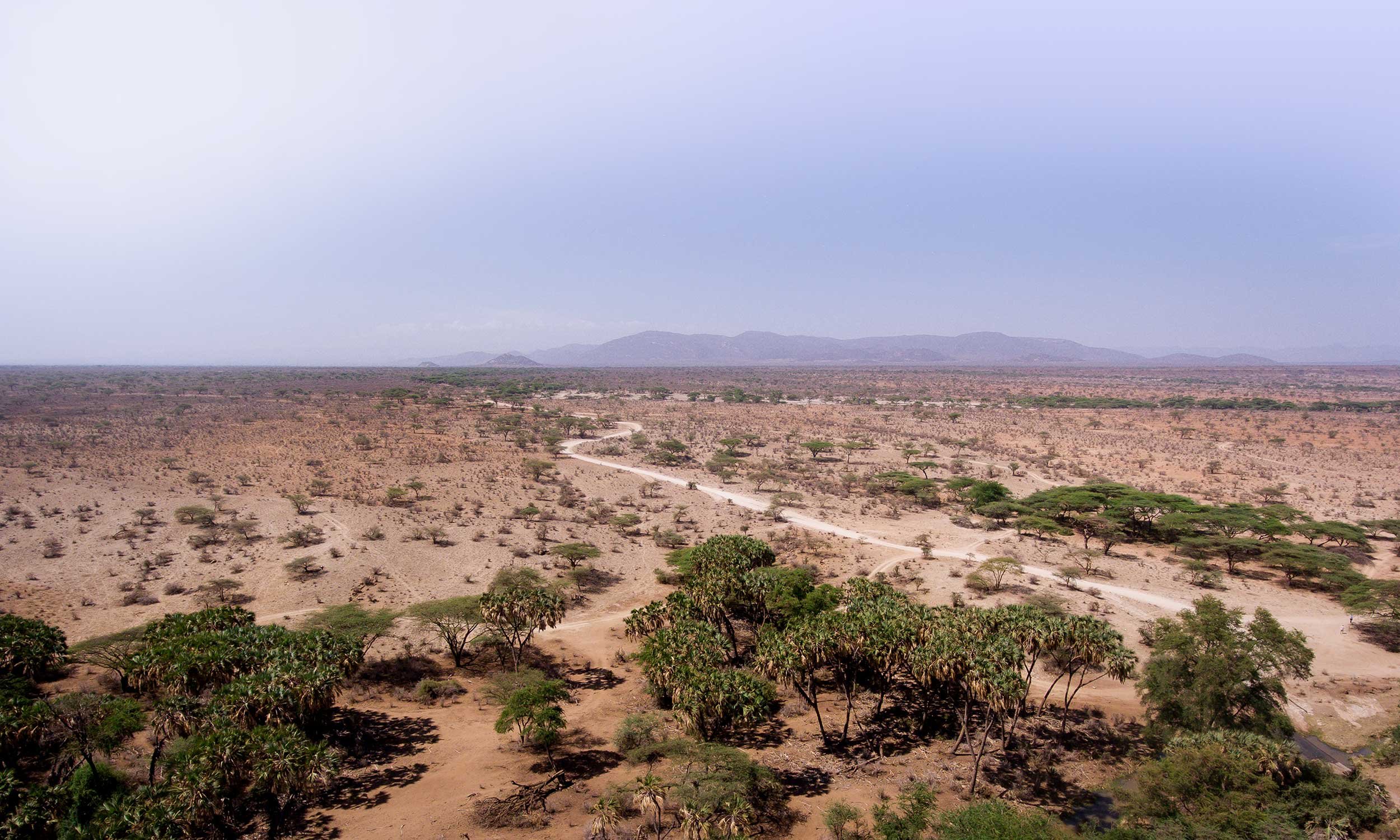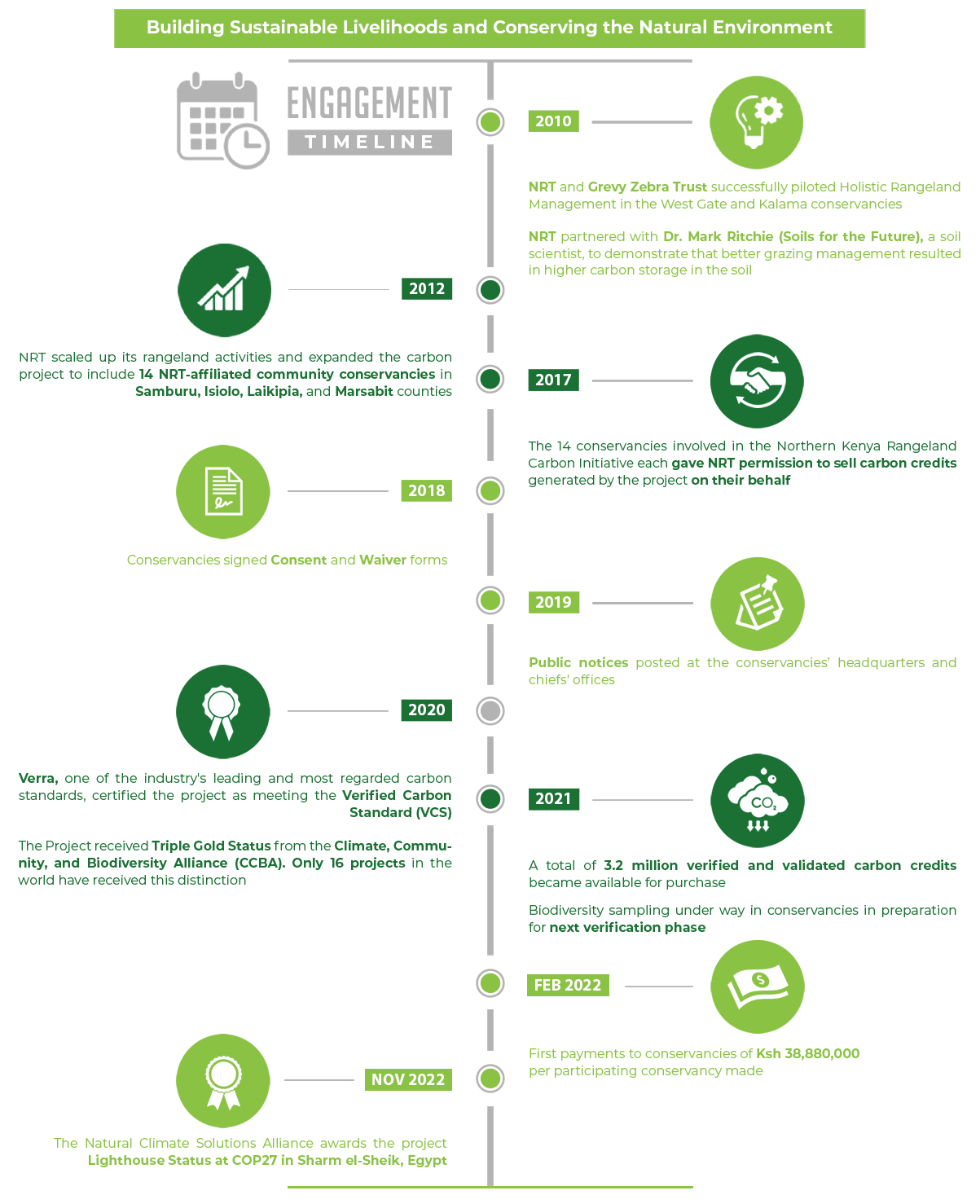

The Project
The Northern Kenya Rangelands Carbon Project (NKRCP) is the world’s largest soil carbon removal project and proof of concept for rangelands restoration and community based development through the carbon market. It is anticipated to remove 50 million tons of CO2 over 30 years – the equivalent of the annual emissions from over 10,000,000 cars – and generate hundreds of millions of dollars for local communities.
The sale of sequestered carbon from community rangelands in northern Kenya will create additional and much needed income for communities and enhance conservation efforts, including the improvement of habitat for four endemic endangered species - the Eastern Black Rhino, Grevy’s Zebra, Reticulated Giraffe and Beisa Oryx, as well as addressing impacts of climate change.
The project spans 1.9 million hectares (4.7 million acres) and is an initiative that will improve grazing for pastoralists and generate additional revenue for 22 community conservancies, increasing the financial viability of conservation and making community conservancies more resilient.
The project is a first of its kind in the world – it is the first to use the new VM0032 methodology, and the first to use both modeled and measured removals, and the first project focused entirely on soil removals. It is also the first validated methodology to work with pastoralist communities who use land resources communally. Between 2013 and 2016, through land protection and rotational grazing practices the project generated more than 3.2 million verified emissions reduction credits, proving its position as one of the few large-scale carbon removal projects available today.
22 community conservancies are involved in the Northern Kenya Rangelands Carbon Project. NRT supports the activities on the ground and the reporting needed for ongoing verification and for credits to continue to be issued and has been authorized by the participating conservancies to sell carbon credits resulting from the project activities on their behalf.
The project has been in development since 2009. The official start date of the project was December 2012 and throughout the process there has been a high level of stakeholder engagement across the project area. There have been a number of official awareness workshops and public events over the project development phase, as well as formal Letters of Intent and Consent forms that the conservancies have sought approval from their communities in order to sign. Recognizing that conservancy leadership and management teams change over time, and that the project development phase has been over a considerable number of years, NRT has recently embarked and invested in an in-depth re-socialization process that saw leadership and management teams host Special AGMS at village level in each participating conservancy to ensure awareness and understanding of the project and ask communities to endorse participation in the project. This process has now been finalized and on 24 June 2021 all participating conservancies signed an implementation agreement signifying their continued commitment to the project.
Companies that invest in the Northern Kenya Rangelands Carbon Project can help meet their carbon neutral and climate positive targets while fulfilling shareholder and customer demands for meaningful and quantifiable results and impact in ways that are transparent and accountable. This is also an opportunity to partner with a long-term project that allows targeted investments that prioritize the needs of communities, including water, infrastructure, and education.
There have been a number of official awareness workshops and public events over the project development phase, as well as formal Letters of Intent and Consent forms that the conservancies have sought approval from their communities





